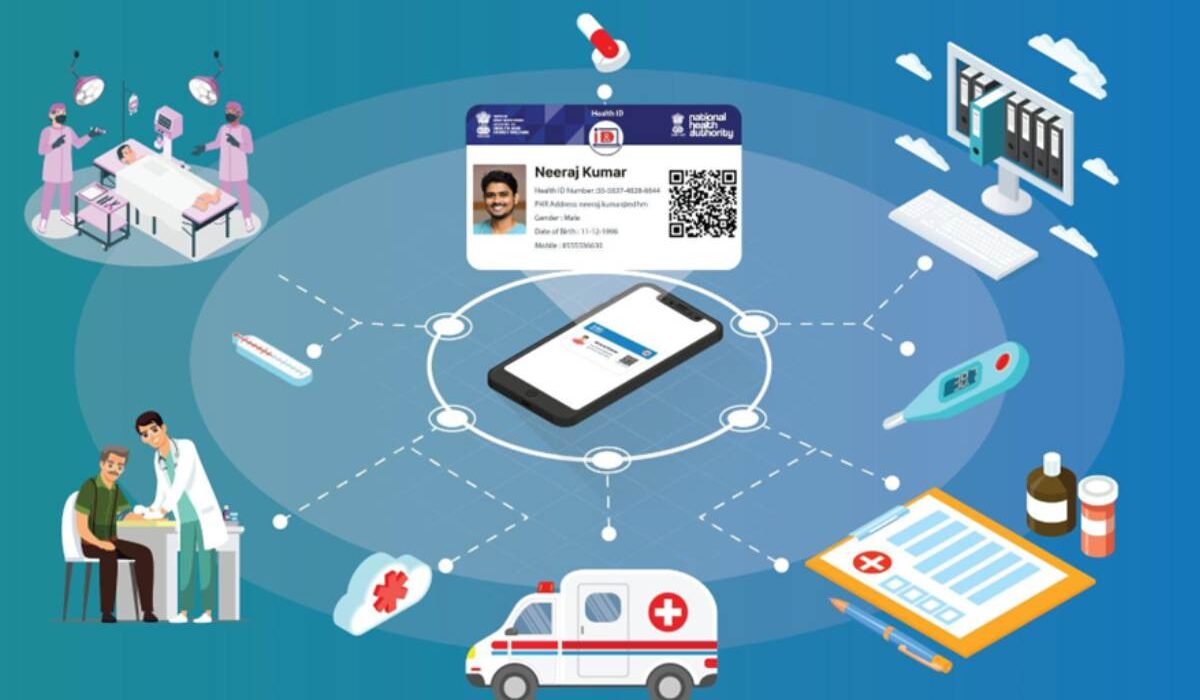Relying on paper records can be challenging, as they can be misplaced, damaged or can be hard to find when they’re needed the most. Imagine you’re in an emergency and you’re struggling to find old medical reports. How stressful and inconvenient that would be, right?
Fortunately, India is embracing digital solutions with the Ayushman Bharat Health Account (ABHA). This innovative system enables individuals to safely store, access and share medical records with ease. With ABHA, healthcare becomes simpler, smarter and more efficient.
What is ABHA?
ABHA is a unique digital health ID that helps individuals store their medical records in one secure place. It is a key component of the Ayushman Bharat Digital Mission (ABDM), which aims to revolutionize healthcare by making it digitized, interconnected, and patient-friendly. With ABHA, you don’t have to worry about carrying bulky files or losing important prescriptions. Everything you need is available at your fingertips.
Why Traditional Health Records Are Outdated
For decades, paper-based records have been the norm. While they served their purpose, they come with several drawbacks:
1. Risk of Damage or Loss
Paper records can be easily misplaced, torn, or even destroyed in events like floods or fires. Important medical history can be lost forever.
2. Inconvenient to Carry
Carrying multiple files every time you visit a doctor is frustrating. It’s difficult to keep everything organized, especially if you have multiple prescriptions, reports, and test results.
3. Repeated Tests Lead to Higher Costs
When you visit a new doctor or hospital, they may ask you to repeat medical tests if your previous reports are unavailable. This leads to unnecessary expenses and delays in treatment.
4. Risk of Misinterpretation
Handwritten prescriptions or medical reports can sometimes be unclear, leading to potential miscommunication between doctors and patients. This can impact treatment accuracy.
ABHA solves all these issues, making healthcare more efficient, affordable, and stress-free.
How ABHA is Transforming Healthcare
1. All Your Records in One Place
With ABHA, you can store all your medical records digitally, ensuring they are accessible anytime, anywhere. Whether it’s lab reports, prescriptions, or doctor’s notes, everything is available with just a few clicks.
2. Instant Sharing with Doctors
Instead of carrying physical documents, you can securely share your health records with doctors online. This makes consultations smoother and saves valuable time.
3. Saves Money by Reducing Repeated Tests
Doctors can access your past medical history instantly, helping them make informed decisions without the need for unnecessary tests. This not only saves time but also cuts down on medical expenses.
4. Improves Accuracy of Medical Records
Digital records eliminate manual errors caused by illegible handwriting or misplaced documents. This ensures that your health data is always accurate and up to date.
5. Secure and Confidential
ABHA follows strict security measures to protect your health data. You have complete control over who can access your medical records, ensuring your privacy is never compromised.
How to Get an ABHA ID
Creating an ABHA ID is simple and takes only a few minutes:
- Visit the official ABHA website or use a health tech app.
- Register using your Aadhaar number or mobile number.
- Verify your details to receive your unique 14-digit ABHA ID.
- Start linking your medical records for easy and secure access.
The Future of Healthcare is Digital
With initiatives like ABHA, India is stepping into a new era of digital healthcare. As more hospitals, clinics, and labs integrate with ABDM, managing health records will become effortless. No more lost files, no more repeated tests, and no more confusion.
If you haven’t created your ABHA ID yet, now is the time! Take control of your family’s health records and experience the convenience of digital healthcare today.


